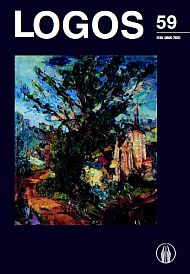Arabiškasis Ibn Rušdo Peripatetizmas
The Arabian Peripatetizm of Ibn Rushd
Author(s): Dalia Marija StančienėSubject(s): Epistemology, Middle-East Philosophy, Philosophy of Religion, Contemporary Islamic Thought
Published by: Visuomeninė organizacija »LOGOS«
Keywords: Ibn Rushd; theology; philosophy; peripatetizm; Islam;
Summary/Abstract: The article reveals the influence of Arab philosophy to Latin Western Europe and discusses the propagation of Ibn Rushd’s philosophical and theological ideas. When Cordoba Caliphate was established, Muslim philosophers and theologians commented Hellenistic heritage and passed it to the Christian culture. Unknown to Europe treatises of Aristotle and their commentaries was translated into Latin at Toledo Translation Academy. Arab thinker Ibn Rushd is regarded as one of the most notorious commentators of Aristotle. He not only commented Aristotle but also considered the idea of human thinking and intellectual cognition, was interested in the theory of the World’s eternity, dealt with socio-political aspects of social life and with the problem of unity between theology and religion. While dealing with the latter, Ibn Rushd claimed that political leaders ought to organize social life in such a way that theologians were not able to disturb the peaceful cohabitation of ordinary people and philosophers. Ibn Rushd’s ethical-intellectual theory of society and man played an important role in formation of European intellectual identity.
Journal: LOGOS - A Journal of Religion, Philosophy, Comparative Cultural Studies and Art
- Issue Year: 2009
- Issue No: 59
- Page Range: 63-72
- Page Count: 10
- Language: Lithuanian

